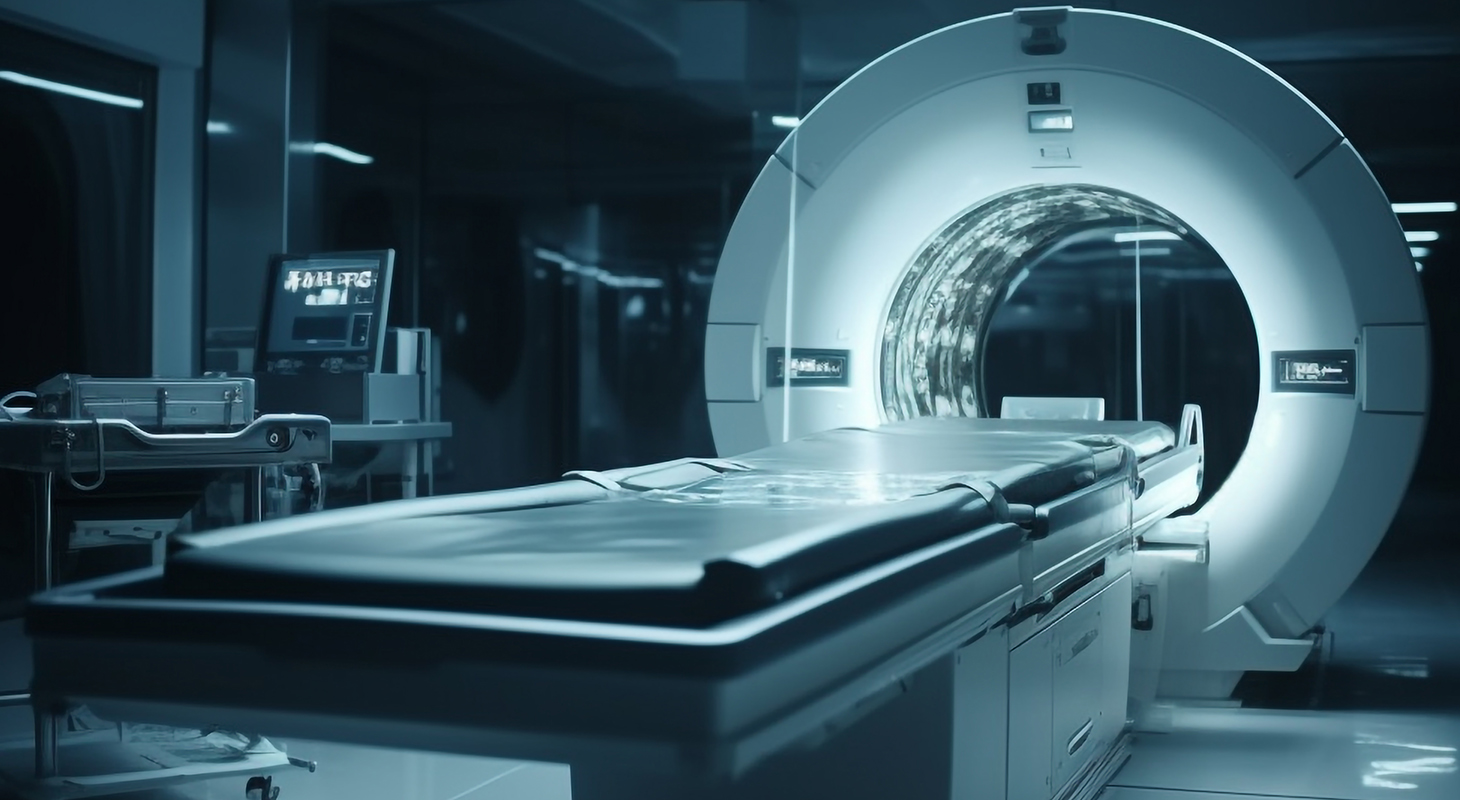- Share
- Share on Facebook
- Share on X
- Share on LinkedIn
Communiqué / Team B.Lemasson/T.Christen, Innovation
On July 1, 2025

How would you imagine the MRI of the future? GIN researchers are in the process of making it ultra-fast, extremely complete, non-invasive and contrast-free.
Researchers from the "Functional Neuroimaging and Cerebral Perfusion" team have coupled a new acquisition scheme that is highly sensitive to the blood compartment - enabling blood vessels to be clearly distinguished without the need to inject a contrast medium - with an analysis technique called Magnetic Resonance Fingerprinting (MRF), which enables several tissue properties to be extracted simultaneously, accurately and reproducibly, based on realistic biophysical simulations.
Their sequence offers a rapid new approach to simultaneously quantifying cerebral blood volume, cerebral microvascularization, standard relaxometry parameters (T1, T2, T2*) and magnetic fields (B0, B1).
“The sequence was trained in simulation on realistic mouse microvascular networks and then tested on healthy human volunteers” explains Thomas Christen, co-leader of the team. "The results obtained are very close to those obtained with conventional methods, which demonstrates its reliability. But this sequence has the advantage of not requiring a contrast agent, and above all it offers the possibility of extremely rapid acquisitions. What's more, a new artificial neural network developed in the laboratory now enables images to be reconstructed in as little as 1 second, whereas they used to take several hours" emphasizes the researcher.
This research work is presented in a highly technical article published in the specialist journal “Magnetic Resonance in Medicine”. It paves the way for further innovations in MRI, notably by incorporating new artificial intelligence tools. This is also the aim of the WISE MRI project led by Thomas Christen and Benjamin Lemasson, funded by the MIAI (Multidisciplinary Institute in Artificial Intelligence) cluster at Grenoble Alpes University.
Reference :
Relaxometry and contrast-free cerebral microvascular quantification using balanced steady-state free precession MR fingerprinting.
Coudert T, Delphin A, Barrier A, Legris L, Warnking JM, Lamalle L, Doneva M, Lemasson B, Barbier EL, Christen T.
Magn Reson Med. 2025 Jul;94(1):302-316. doi: 10.1002/mrm.30434. Epub 2025 Jan 17.
Date
- Share
- Share on Facebook
- Share on X
- Share on LinkedIn